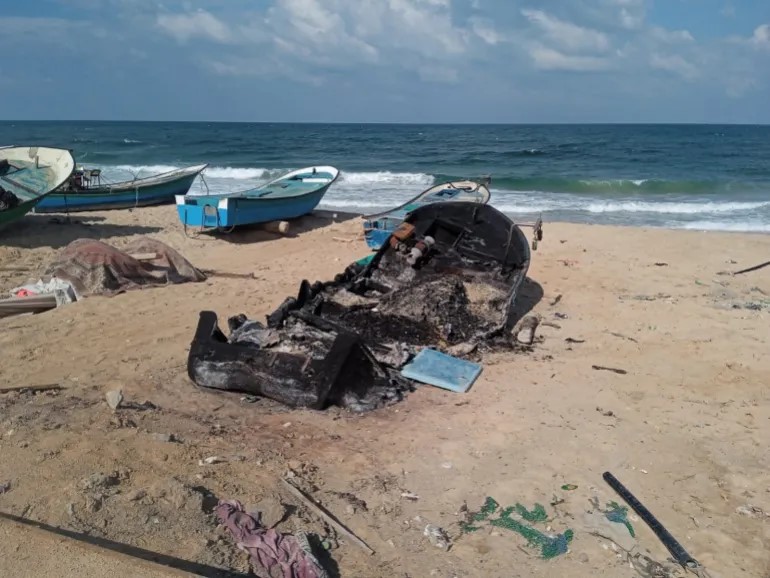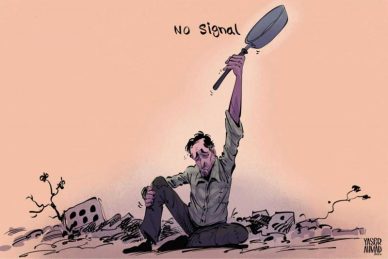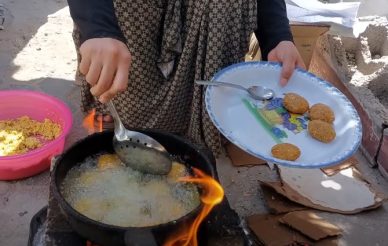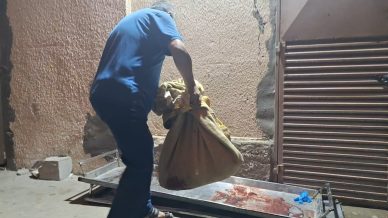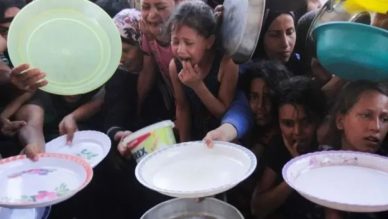GAZA, (PIC)
Fishermen face threats and dangers that threaten their lives and livelihoods every time they venture into the sea, which they once relied upon for sustenance. Today, it has become a battleground of suffering and peril, with Israeli war boats chasing and targeting them along with their boats, equipment, and nets, leaving their families to confront poverty and deprivation.
Fisherman Mohammed Abu Hassan says, “We go out to sea not knowing if we will return safely. The war boats chase us daily, firing at us without warning, and sometimes they confiscate or destroy our nets. This is not just a threat to our lives; it is also a destruction of my family’s livelihood, which depends entirely on fishing.”
Daily risks
Like Mohammed, dozens of fishermen risk their lives daily, sailing just hundreds of meters from the Gaza shore in search of a living, steeped in blood due to the occupation’s aggression. Fisherman Taysir Bissal, who was displaced from Shati refugee camp to Khan Yunis, has been compelled by harsh living conditions to resume work in the Khan Yunis sea to support his family.
Taysir rented a small fishing boat and started from scratch, having no money or fishing equipment. He says, “We sail a short distance of no more than 500 meters, during which we are pursued by the occupation’s boats that fire bullets and shells at us, forcing us to leave quickly.”
He notes that the limited distance they can sail does not yield fish, making their perilous trips unproductive. “We face the dangers of the sea and the ongoing threats from the occupation against fishermen along the entire coast of the enclave. We work amid fears of fatal injuries at the hands of the occupation.”
The martyrdom of fisherman Maher Abu Rayala
At 8 AM on Friday, November 22, 2024, Israeli war boats targeted Palestinian fishermen using a small, hand-operated boat 300 meters from the shore west of the Shati Camp in the Al-Qarara port in central Gaza. This attack resulted in the martyrdom of fisherman Maher Khalil Abu Rayala and injured another fisherman, leading to the amputation of his hand.
His cousin Nayef Abu Rayala, a member of the Fishermen’s Syndicate, stated that the martyr (50 years old) was fishing to support his family of 14. He added that Maher wanted to send a message to the occupation that despite prohibiting fishermen from going to sea, this sea belongs to them, and they will not abandon their profession.
Nayef mentioned that his cousin had been putting himself at risk and sensed his impending martyrdom days before the incident, asking him to take care of his family, which had been displaced to southern Gaza, preventing them from bidding farewell to their provider when he was killed.
According to the Ministry of Agriculture, since the outbreak of the genocide, 200 fishermen have been martyred, and the occupation has destroyed 270 fishermen’s rooms out of 300, along with 1,800 boats out of 2,000, in addition to the destruction of Gaza’s main port and five docks.
Destruction of fishing infrastructure
The spokesperson for the Ministry of Agriculture, Engineer Mohammed Abu Awda, confirms that the occupation forces have destroyed the fishing sector’s infrastructure since the beginning of the genocide against Gaza on October 7, 2023.
Abu Awda said in a press release that the destruction included the main port west of Gaza City, the docks, and the fishermen’s rooms and warehouses along the coast. He noted that the war on Gaza has created a set of challenges characterized by the direct targeting of fishermen, who are deprived of access to the sea and fishing. The occupation army has damaged fishing tools and sunk boats.
Among these challenges, according to Abu Awda, is the occupation’s blockade on spare parts and fishing equipment, as well as the prohibition of fuel necessary to operate engines, drastically reducing the fishing area to the point of complete prohibition currently.
Variety of violations
Zakariah Bakr, a spokesperson for the Fishermen’s Committees, says that violations over the past months have included gunfire and shells directed at fishing boats both at sea and at anchor, in addition to arrests, confiscation of boats, and destruction of fishing equipment.
Bakr mentioned in press statements that the average monthly arrests amount to about five fishermen, while the average number of attacks ranges from 30 to 40, with an average of three to four incidents of damage. According to Nizar Ayyash, head of the Palestinian Fishermen’s Syndicate in Gaza, around 5,000 fishermen in the Strip support about 50,000 family members and live in constant fear of Israeli targeting while working. As a result, “only 200 fishermen out of the total are able to work despite the dangers,” noting that fishermen’s losses are estimated at $60 million, with fishing being the second most important profession in the Strip after agriculture.
The targeting of fishermen in Gaza reflects a part of the suffering of the besieged enclave as a whole. The continuation of these Israeli crimes against them threatens to destroy the fishing sector, which thousands rely on, increasing the burdens of the blockade. Fishermen in Gaza are sending a message to the world: “We want protection. We want to work with dignity without fearing for our lives. The sea is our life, and the continuation of these violations destroys everything.”

